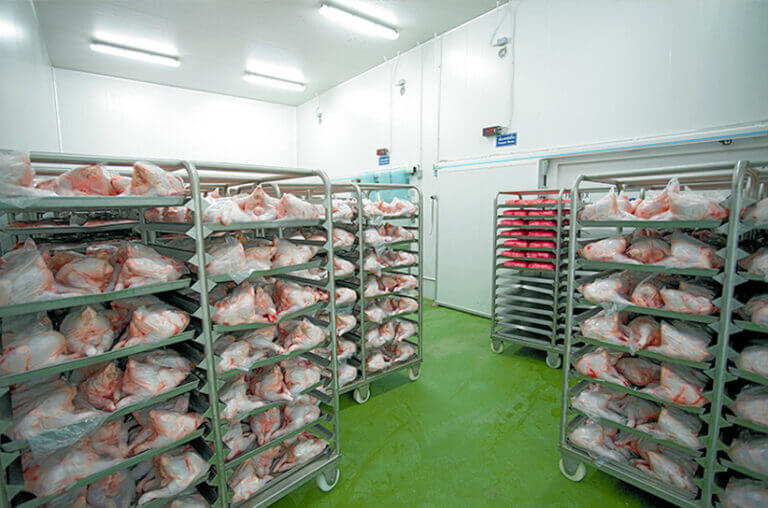Exploring the Benefits of Cold Storage Solutions for Businesses in China
The Rise of Commercial Cold Rooms in China
In recent years, the demand for commercial cold rooms in China has surged dramatically, driven by the nation’s booming food storage and logistics sectors. The cold storage industry plays a pivotal role in ensuring the freshness and safety of perishable goods, which include everything from raw agricultural produce to processed foods and pharmaceuticals. This article delves into the significance of commercial cold rooms in China, exploring their applications, benefits, and the factors contributing to their rapid growth.
Understanding Commercial Cold Rooms
Commercial cold rooms, also known as cold storage rooms, are specialized facilities designed to maintain low temperatures for the storage of perishable items. These storage spaces can be customized to meet specific temperature and humidity requirements based on the nature of the products being stored. They are commonly used in supermarkets, food processing units, warehouses, and restaurants to preserve the quality of food items over extended periods.
Applications in the Food Industry
The food industry is the primary beneficiary of cold room technology. With China being one of the largest consumers and producers of food globally, maintaining the quality of food from farm to table is of utmost importance. Cold rooms help in reducing food spoilage, ensuring that fruits, vegetables, meat, dairy, and seafood retain their freshness for longer periods.
Moreover, as e-commerce for food gains traction in China, commercial cold rooms are integral to creating efficient supply chains. Online grocery providers and food delivery services require reliable cold storage solutions to transport perishable goods quickly while maintaining optimal temperatures. This helps in meeting consumer expectations for freshness while minimizing waste.
Benefits of Commercial Cold Rooms
1. Enhanced Food Safety The use of cold rooms significantly reduces the risk of foodborne illnesses by inhibiting the growth of bacteria and other pathogens. Maintaining the appropriate temperature during storage and transportation is critical for ensuring safe food consumption.
2. Reduction of Food Waste According to studies, a substantial portion of food produced is lost or wasted due to inadequate storage conditions. Commercial cold rooms play a vital role in reducing this waste by extending the shelf life of products, thereby contributing to more sustainable food systems.
china commercial cold room

3. Improved Supply Chain Efficiency Cold storage facilities enable better inventory management and distribution strategies. Businesses can stock larger quantities of perishable goods, reducing the frequency of orders and ensuring a steady supply to meet consumer demand.
4. Facilitation of Global Trade As China's economy becomes more integrated into the global market, commercial cold rooms allow for the transport of perishable goods across borders. With the capability to maintain required temperatures during transit, exporters can expand their reach to international markets, thereby increasing their competitiveness.
Factors Driving Growth in China
Several factors are contributing to the expansion of the commercial cold room sector in China
- Urbanization Rapid urbanization has led to increased demand for fresh food products in cities, necessitating advanced storage solutions to meet consumer needs. - E-commerce Growth The exponential rise of online shopping, especially post-COVID, has created a spike in demand for cold chain logistics solutions. Companies are investing heavily in commercial cold rooms to support this growth.
- Government Initiatives Chinese government policies aimed at reducing food waste and enhancing food safety standards are encouraging investments in cold storage facilities. Incentives and subsidies are being offered for businesses to improve their cold chain infrastructures.
- Technological Advances Innovations in refrigeration technology, automation, and energy efficiency are making commercial cold room solutions more affordable and efficient, encouraging broader adoption across various sectors.
Conclusion
The commercial cold room industry in China is witnessing unprecedented growth, driven by the increasing importance of food safety, sustainability, and evolving consumer demands. As businesses continue to adapt to these changes, commercial cold rooms will play an essential role in shaping the future of the food supply chain in China, ensuring that consumers have access to safe, fresh, and high-quality products. The ongoing development of this sector presents an exciting opportunity for investment and innovation, ultimately benefiting both businesses and consumers.
-
Transform Operations with Vacuum Freezer MachineNewsMay.14,2025
-
Enhance Business with Cold Room TechnologyNewsMay.14,2025
-
Vacuum Freezer Machine for Modern NeedsNewsMay.09,2025
-
Discover Our Comprehensive Cold Room SolutionsNewsMay.09,2025
-
Cold Room Solutions for Your BusinessNewsMay.08,2025
-
Advanced Vacuum Freezer MachineNewsMay.08,2025
















































































































